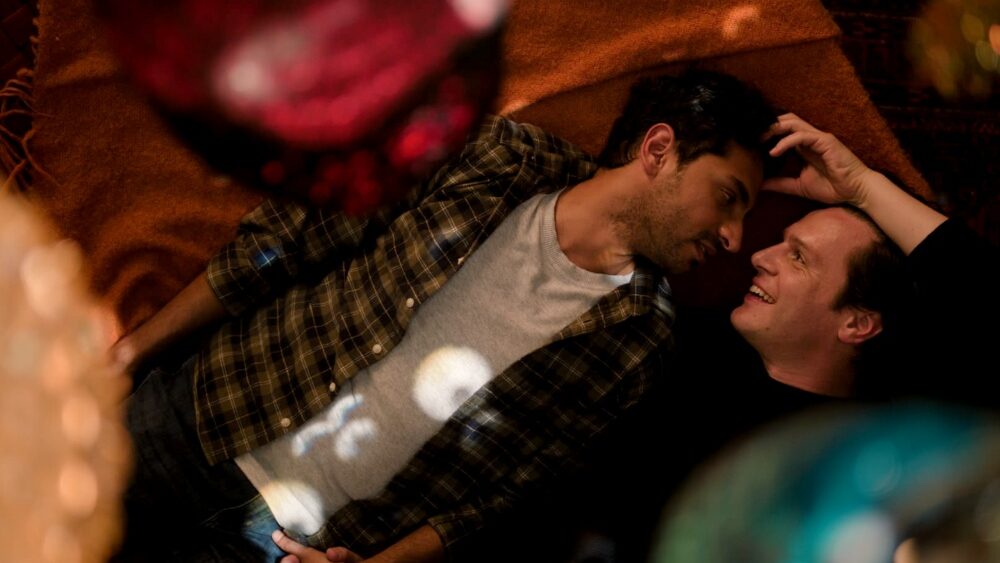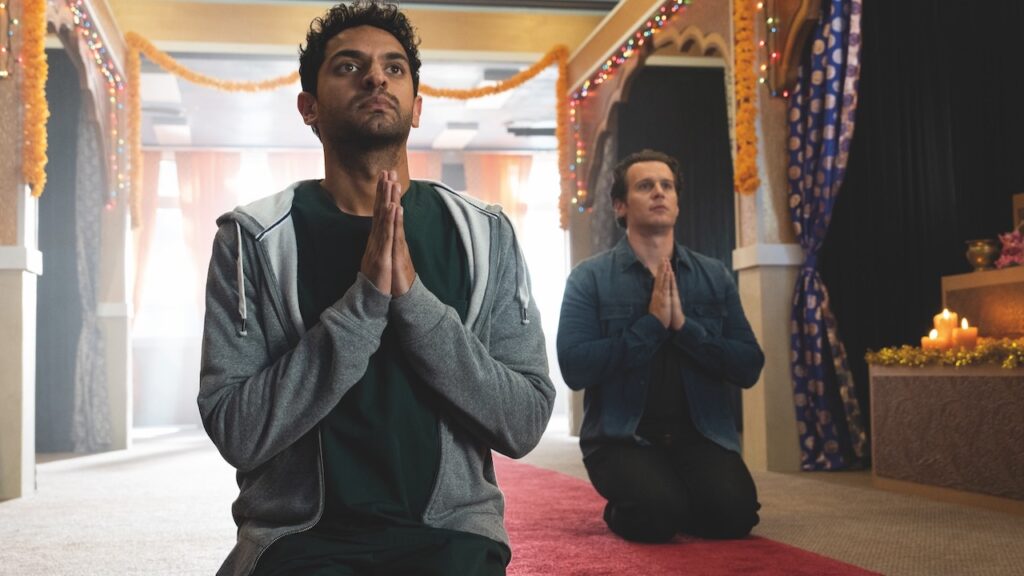A Nice Indian Boy: Karan Soni, Jonathan Groff respond as gay rom-com debuts with 100% Rotten Tomatoes rating
Exclusive: "It's not a coming out story - he came out years before the movie starts," Karan tells Attitude of his character

Karan Soni and Jonathan Groff are well-known for their blockbusters – but their latest project, the critically acclaimed indie A Nice Indian Boy, marks a welcome gear change.
The guys discussed their new film, currently rated 100% Fresh on Rotten Tomatoes, with Attitude alongside director Roshan Sethi at last night’s BFI London Film Festival screening at the Curzon Mayfair.
Asked to sum up the film’s plot, Karan said: “My character meets Jonathan’s character, we fall in love, and then I have to introduce him to my very traditional Indian family. He has to win them over before the wedding.”
Added Jonathan: “I just watched the movie for the first time a couple of days ago; I wanted to see it in a theatre, not a link on my laptop. And I was so overwhelmed by the power of this movie.”
“I’ve been saying the movie is for everyone – for queer people, for not queer people, for Indian people, not Indian people,” Roshan meanwhile told us.

“It’s not a coming out story – [Naveen] came out years before the movie starts,” Karan added. “It’s that part in the queer journey where you haven’t brought someone home yet. So, theoretically your parents are OK with the idea of it…”
Karan is best-known for his role as Dopinder in the three Deadpool films, including this year’s Deadpool & Wolverine. He also lent his voice to 2023’s Spider-Man: Across the Spider-Verse.
“Great work and great art finds its way” – Jonathan Groff on A Nice Indian Boy
Sharing feedback he’s received from parents at screening Q&As, Karan said: “They spoke about their own journey, with not going to their children’s weddings. They’ve come to peace with it years later, but they’ve missed chunks of their lives with their children. A lot of them spoke about, if they had a version of this movie earlier, maybe would have bridged that gap sooner.”
Jonathan, of course, is known for his work in the two Frozen films and 2021’s The Matrix Resurrections, plus popular TV shows like Glee and Looking. The Tony Award-winner is also a stage veteran, with credits including Hamilton and Merrily We Roll Along.
“That would be amazing if that happened,” said Jonathan of the possibility of fans of his studio films supporting this title. “That, in some ways, is out of our control. But in my gut, I feel like great work and great art finds its way. I believed in this script and this team. … Happily, if there are people who are Glee or Frozen or Mindhunter or musical theatre fans, I’m so happy to bring them this story. But I think the movie is powerful enough to bring people on its own accord.”
“The movie is for everyone – for queer people, for not queer people, for Indian people, not Indian people”
Describing the plot of the film, Roshan said: “We shot a dance sequence that appears somewhere in the movie. It was tremendously difficult, but very memorable!” And asked for standout feedback to the film, he said: “Probably from my mother, who said she understood me in a way she hadn’t before! It was very sweet, very moving.”
Reflecting on the importance of film criticism, Roshan said: “It’s the most important thing. This is my second independent film, and third overall. In each case, independent films in particular, … survive on the critics’ response. That’s what gets the attention of distributors, who are all reading every single review and looking at the Rotten Tomatoes score. It [makes it] easier to make the next movie as well. It makes a huge, huge difference. Also, people at the distributors often don’t believe there’s an audience for a movie. Critics often prove that there is.”
